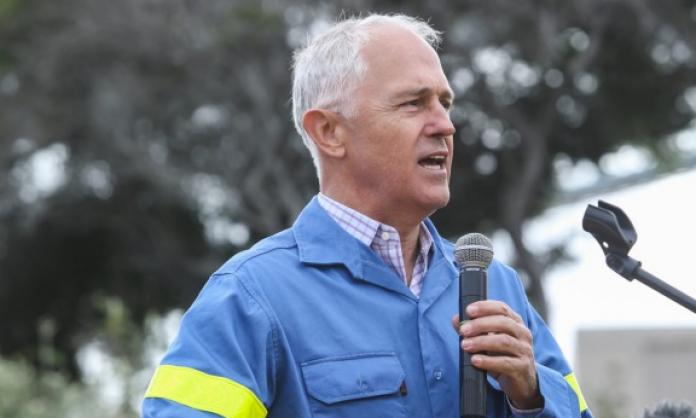The Liberals love to say that they’re the party of private enterprise and that free markets must rule.
In the name of capitalist efficiency and consumer choice, essential infrastructure has been sold off to private owners over the last decades. And a range of businesses now provide basic infrastructure and services that in previous generations would have been handled by government: internet service providers, toll roads and bridges, new airports and runways, train, tram and bus operators etc.
But in truth, private enterprise is far from efficient.
Many of these companies could not stand on their own two feet without constant infusions of public money. Whether it’s endless annual subsidies, free land and infrastructure, tax breaks, guaranteed markets or the public sector underwriting loans, governments pump billions of dollars into private operators so that vital services can remain in operation.
The money doesn’t all go to providing for the public. It’s pocketed by company directors, CEOs, bankers and senior partners in the blue ribbon law, accountancy and consultancy firms that run these businesses – and by the directors of the funds management industry that bought them.
In the name of “entrepreneurship” and “efficiency”, politically connected fat cats are bleeding the public dry – it’s socialism for the rich.
The latest example concerns the power industry. It may seem bizarre but Australia, a country blessed with every kind of natural resource, could be heading into another summer of blackouts of the kind that plagued South Australia earlier this year. The Australian Energy Market Operator (AEMO), the agency meant to oversee the secure supply of energy to households and businesses, has just reported:
“We note that absent to changes, we face an increasing and unacceptable risk that there will be insufficient capability in the system to meet National Electricity Market reliability standards. In turn, this exposes consumers to a heightened risk of involuntary and unacceptable load shedding.”
This ridiculous situation is the direct result of the chaos that has resulted from the introduction of the national energy market and the sell-off of the old public sector power industry.
The Turnbull government’s answer to this latest system breakdown? Once again, out comes the cheque book. AEMO, i.e. the government, proposes to pay businesses with diesel generators, as well as gas power stations with spare capacity, to be on standby to pump extra power into the system when blackouts are threatened. And it will throw more millions to big energy users like factories to avoid using power at peak times.
The bill for this largesse for the private sector? A cool $50 million. Energy minister Josh Frydenberg says that this is “not a lot of money in the scheme of things”. Well, no, not if it’s being paid to big business. But the likes of Frydenberg turn into Scrooge when it’s even suggested that these kinds of funds are paid to workers or social security recipients. Then, the cupboard is bare.
The government is now shaping up to dole out yet more funds to the energy industry. Private operator AGL has announced plans to shut down its Liddell coal-fired power station in the Hunter Valley in NSW because it has reached the end of its commercial life.
The government response: come hell or high water, or more specifically, with the aid of another tranche of government money, Liddell should be kept open.
In news that will shock any naïve “free market” enthusiasts in the LNP, former resources minister Matt Canavan slammed those selfish capitalists at AGL for operating like, well, capitalists: “AGL should be operating with a modicum of the national interest in mind, not just trying to maximise their profits.”
In case you’re thinking this might herald a big shift in government thinking, perhaps with bosses soon being ordered to keep factories open rather than sack workers, rest assured: nothing has changed at LNP HQ. The “national interest” that Canavan has in mind is the interest of Big Coal.
His main gripe is that Liddell’s closure will hurt BHP, Rio Tinto and others, which are facing the prospect that gushing revenues generated by supplying highly subsidised coal fired power stations will start to dry up as these stranded assets come to the end of their profitable lives.
Stand by for news of some stitch-up to keep Liddell going for even more years, courtesy of still more government money.
Make no mistake, the government should intervene. But only to nationalise the energy industry and guarantee the energy supply as a human right. The Liberal party, however, while prattling on about “efficiency”, “competition” and “consumer choice”, only wants to intervene to channel money from the public purse into the pockets of the silk-suited rich.









